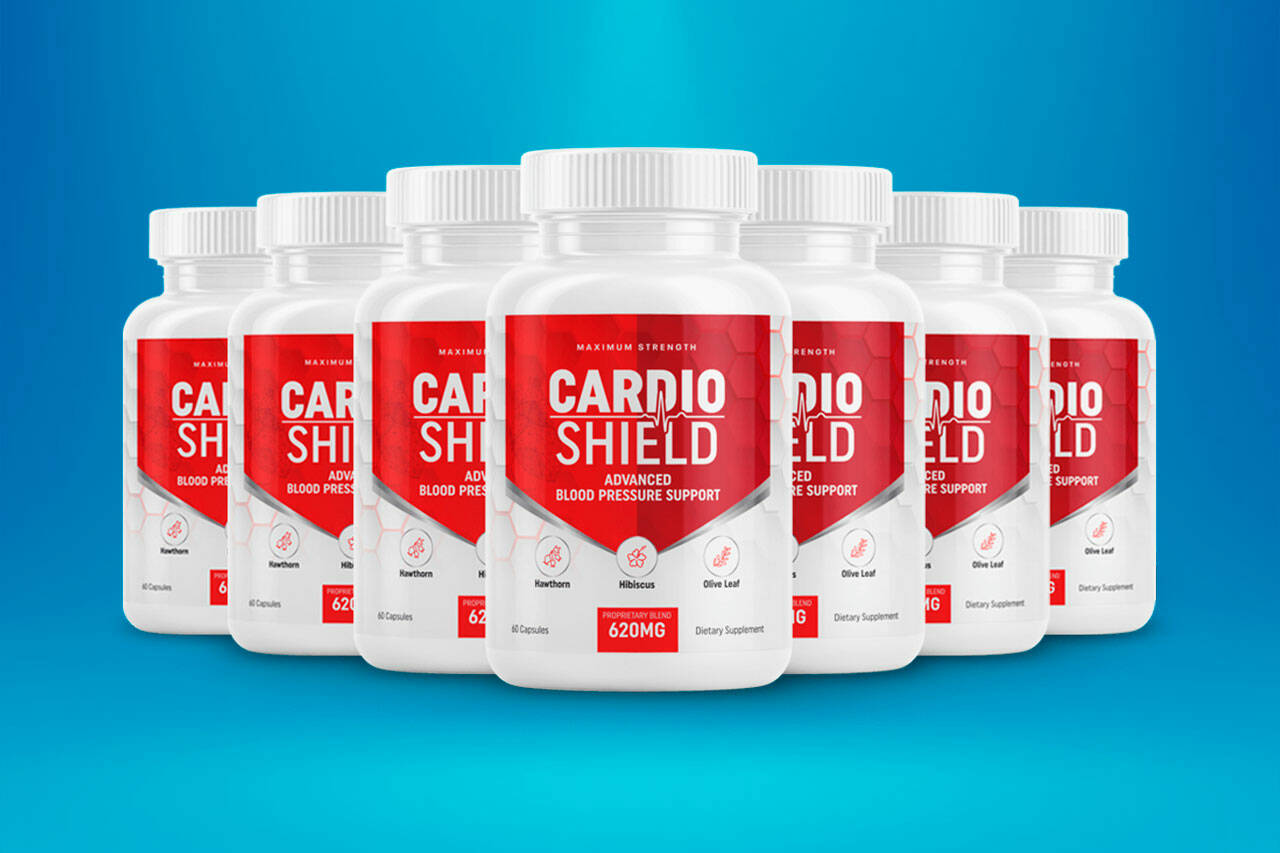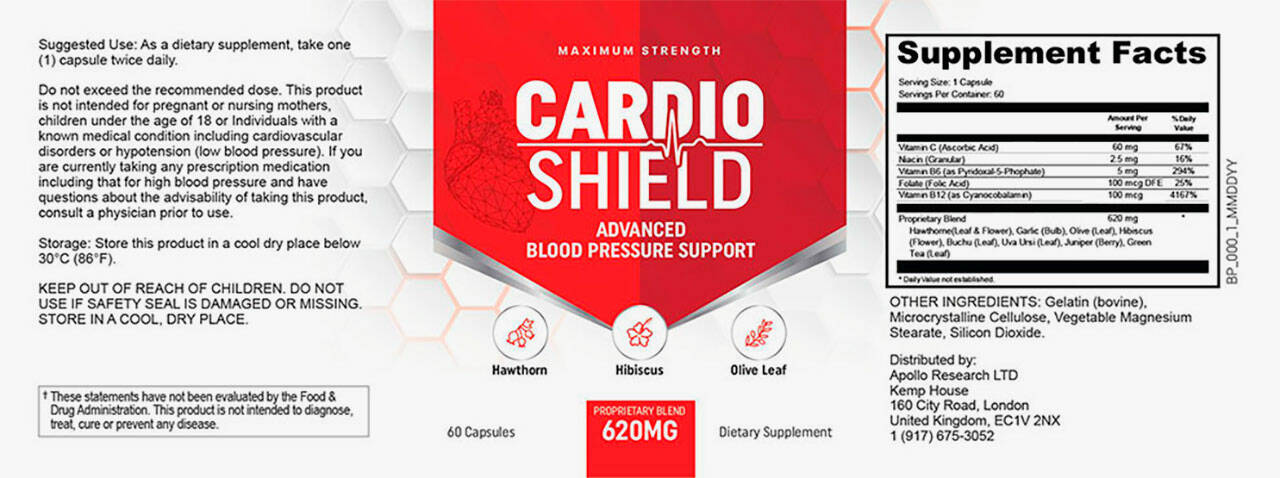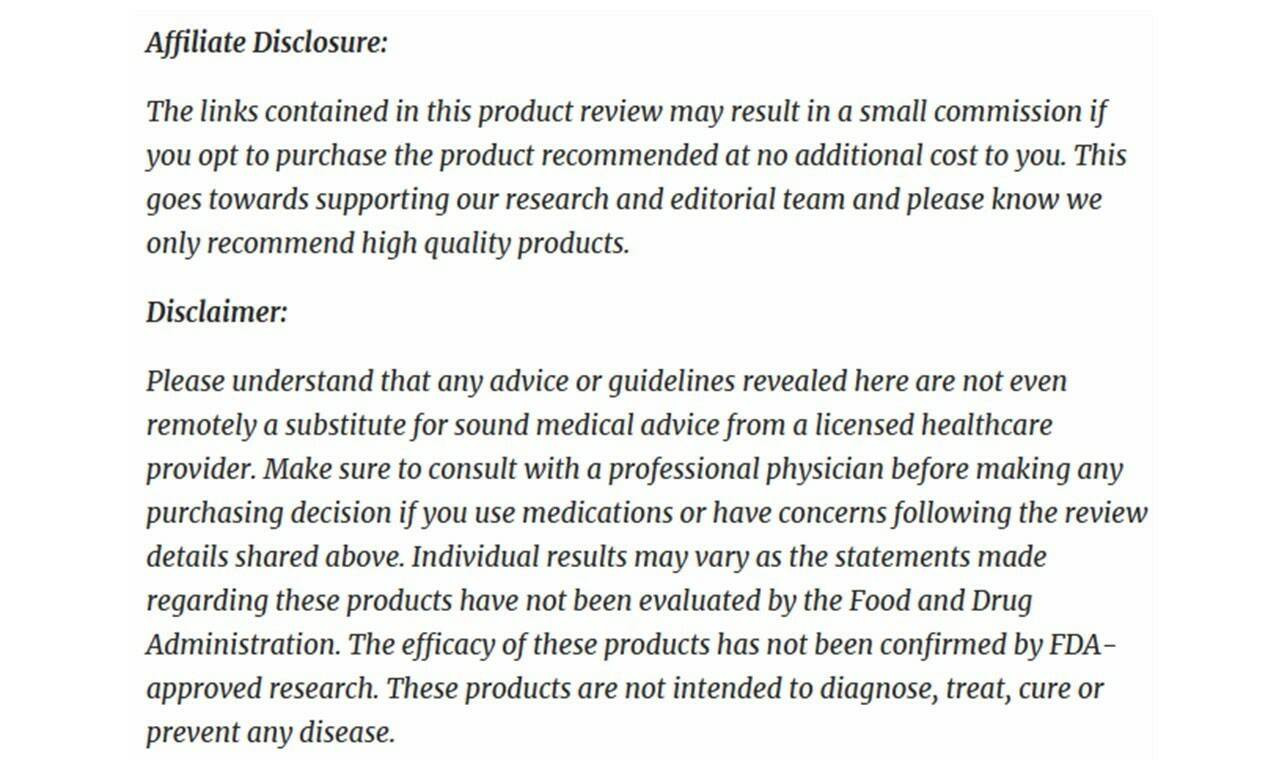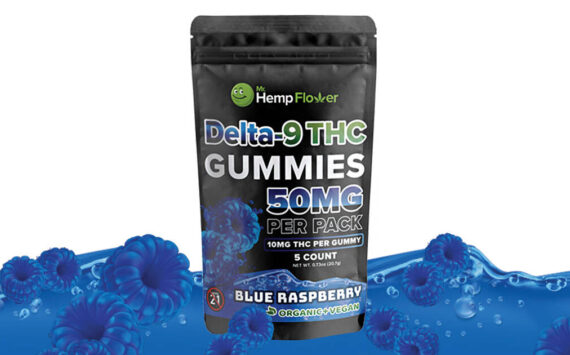Did you know that in 2020, hypertension alone was responsible for more than 670,000 deaths in the USA [1]? Is it concerning that only 25% of this population has figured out how to keep their blood pressure under control? These statistics are undoubtedly related, and the trend appears to be upward. At least, our editorial team thought until one company claimed to have developed a solution addressing the root cause of hypertension. Without further ado, here’s everything you need to know about Cardio Shield.
What is Cardio Shield?
According to the official website, Cardio Shield is a natural blood pressure supplement designed to address the underlying cause of high blood pressure. By doing so, individuals should be able to regain control of not only their blood pressure levels but also their overall heart health and quality of life. This solution is considered equally effective for people in their 40s, 50s, 60s, and even older. The latter certainly surprised us, so the next logical step was to review the Cardio Shield function.
How does Cardio Shield work?
According to the official website, Cardio Shield was created to investigate a “rogue blood pressure molecules#8221; that is said to cause blood vessels to constrict. Surprisingly, this group of molecules has been linked to DNA damage, decreased nitric oxide levels (and thus the body’s ability to absorb nutrients), and elevated blood pressure levels. Worse, the tightening prevents blood from pumping throughout the body. It turns out that the culprit is known scientifically as the superoxide anion.
Our editorial team did some research to find out where the creators of Cardio Shield were headed. As a result, we discovered a 2004 study [2] that sought to determine the role of superoxide anion on hypertension and nitric oxide in spontaneously hypertensive rats (SHR). Finally, the researchers discovered that excessive superoxide production reduced the function of nitric oxide, “resulting in a loss of blood vessel tone and hypertension.”
Furthermore, they contended that removing the culprit is the most likely option for restoring blood pressure to near-normal levels. According to a 2019 study [3], which also investigated the effects of superoxide anions using rats, the molecule may cause high blood pressure by increasing oxidative stress (or an imbalance between free radicals and antioxidants).
What ingredients are inside Cardio Shield?
According to the official website, Cardio Shield contains a 620mg-proprietary blend of:
Hawthorn (Leaf & Flower)
Hawthorn is a flowering shrub in the rose family. This plant has traditionally been used to lower the risk of developing heart disease and manage blood pressure and cholesterol levels effectively. According to one source [4], animal and human studies have improved circulation and increased coronary artery blood flow. A review of hawthorn properties [5] revealed that it has anti-atherosclerotic effects (i.e., it prevents the buildup of fats, cholesterol, and other substances in and around the artery walls).
Garlic Bulb
Garlic bulbs [6] contain cloves and garlic plants growing beneath the soil. Garlic’s primary active compound, allicin, may help lower blood pressure by preventing the production of angiotensin II, increasing the availability of nitric oxide, or increasing hydrogen sulfide, as per one source discussing the substance’s impact on blood pressure. Additionally, its anti-inflammatory and antioxidant properties have been mentioned as contributing factors.
Olive Leaf
Olive leaf extract [7]8] is another primary ingredient with several medicinal qualities. It has gastroprotective, neuroprotective, antimicrobial, anticancer, anti-inflammatory, antioxidant, and antinociceptive properties, which surprised us. It is generally considered safe to take doses of 500 to 1000 mg, which may help to reduce blood pressure, support weight loss, and lower the risk of developing cardiovascular diseases, among other things. Olive leaves’ phenolic and flavonoid content should protect individuals from oxidative stress.
Hibiscus
Hibiscus is a flowering plant genus in the Malvaceae family. According to recent studies, this plant can lower blood pressure as effectively as some common anti-hypertensive medications [9]. For example, a 2019 study examining hibiscus’ effect on blood pressure in patients with stage I hypertension discovered that drinking it twice a day as tea can be beneficial. The researchers recommended it in addition to a healthy lifestyle and dietary changes [10]. A more recent systematic review and meta-analysis suggested that regular consumption of hibiscus may reduce the risk of cardiovascular disease; however, more research is needed to determine an appropriate dosage and treatment duration.
Buchu Leaf
Agathosma betulina, also known as buchu leaf [11], is a flowering plant and diuretic belonging to the Rutaceae family. According to one source, buchu’s water-eliminating quality may be beneficial. Why? Because it may contain compounds that act as calcium channel blockers, which are necessary for controlling high blood pressure and maintaining heart health. Its high hesperidin content, in particular, is also thought to protect against hypertension by strengthening blood vessels [12].
Juniper Berry
Juniper berries [13]are similar to blueberries but much plumper in nature. This berry is considered a good source of vitamin C, providing 10% of the daily value. As to why we care, vitamin C is a powerful antioxidant with a high likelihood of boosting immunity, combating oxidative stress, and improving blood vessel function. Surprisingly, juniper berries contain over 70 compounds, some of which may prevent superoxide activity. Lastly, It is essential for heart health because its nutrients can lower triglyceride levels.
Green Tea
Finally, there’s green tea [14], a beverage made from the Camellia sinensis plant. Research on its effect on blood pressure has been inconsistent. A meta-analysis study evaluated the value of green tea quantitatively to get to the bottom of it all. The researchers concluded that tea has beneficial effects. However, it worked best when a low-dose polyphenol concentration was chosen with a lengthy intervention period or when caffeine was avoided.
Supporting ingredients include Vitamin C (60mg), Niacin (2.5mg), Vitamin B6 (5mg), Folate (100mcg), and Vitamin B12 (100mcg).
Frequently Asked Questions (FAQS)
Is Cardio Shield safe to use?
Cardio Shield is considered safe because it contains low doses of natural ingredients. It is critical to understand that just because a formula contains natural ingredients does not mean it is free of side effects or medication interactions. As a result, individuals are advised to conduct their research before proceeding.
Are there any negative consequences to using Cardio Shield?
The creators promise that side effects are implausible when writing. The only way to know for sure is to examine one’s lifestyle, eating habits, and medication intake. Individuals may wish to consult a health practitioner for reassurance.
Who should steer clear of Cardio Shield?
Cardio Shield is not recommended for pregnant or nursing mothers or children under 18.
How should you take Cardio Shield?
Individuals are recommended to take one capsule twice daily as a dietary supplement.
How should Cardio Shield be stored?
Cardio Shield must be stored in a cool, dry place below 30 degrees Celsius.
How long will it take for Cardio Shield shipments to arrive?
Orders in the United States will take between 5 and 7 business days to process. People in other countries will have to wait up to 21 business days.
Is there a money-back guarantee for Cardio Shield?
Yes, Cardio Shield comes with a 180-day money-back guarantee. Contact customer service for a full refund if this supplement does not improve blood pressure levels or help with overall management. However, this may only apply to unused bottles, and individuals should confirm this before proceeding.
To get started, contact via:
Phone: 1 (917) 675 3052
Email: support@getcardioshield.com.
Mailing Address: Apollo Research LTD, 160 City Road, London, United Kingdom, EC1V 2NX
How much does Cardio Shield cost?
Each Cardio Shield bottle contains 60 capsules, which is enough for one month. Here are some pricing examples based on quantity:
- 1 Cardio Shield bottle: $59 each
- 3 Cardio Shield bottles: $49 each
- 6 Cardio Shield bottles: $39 each
Final Verdict
It should be evident from the analysis above that Cardio Shield is a blood pressure support that works to reduce the presence of superoxide anions, which seem to be connected to increased oxidative damage. Blood circulation is thought to be restricted by rising free radicals in the body, in the same way, nitric oxide may be. Eventually, this causes blood to try to force against the artery walls, increasing one’s risk of heart disease.
Fortunately, the contents of Cardio Shield contain evidence supporting the reduction or maintenance of blood pressure levels. The concentration per dose, which appears to be relatively low, is a source of concern. This could result in delayed results, but individuals must trust the process.
To learn more about how Cardio Shield can benefit your health, click here! >>>







